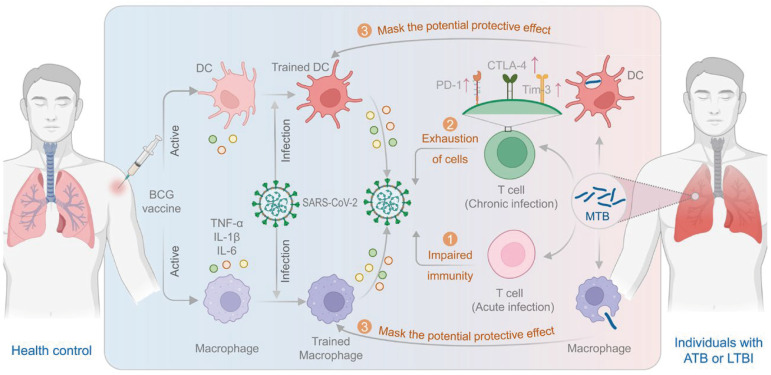Fig. 1. BCG-induced trained immunity and the impact of acute and chronic MTB infection on its efficacy. The BCG-induced trained immunity relies on intercellular communication between various immune cells. The BCG vaccination stimulates innate immune cells to release inflammatory cytokines such as IL-1β, TNF-α, and IL-6, which in turn activate T cells and B cells for a more synchronized and effective response to subsequent infections, resulting in improved protection. However, acute and chronic MTB infections may impair immunity and exhaustion of T cells and mask the potential protective effects of the BCG vaccine.
BCG = Bacillus Calmette-Guérin, DC = dendritic cells, SARS-CoV-2 = severe acute respiratory syndrome coronavirus 2, TNF-α = tumor necrosis factor-α, IL = interleukin, PD-1 = programmed death 1, CTLA-4 = lymphocyte activation gene 3, and cytotoxic T lymphocyte antigen 4, Tim-3 = T-cell immunoglobulin and mucin structural domain protein 3, MTB = M. tuberculosis, ATB = active tuberculosis, LTBI = latent tuberculosis infection.

